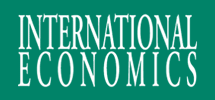
<< N°171
| N°171 | ||
| Issue Q3 2022 | ||
| “There is No vaccine for climate change” - How well Governments’COVID-19 green stimulus announcements contribute to business sustainability? | ||
|
Refk Selmi Farid Makhlouf Kamal Kasmaoui Youssef Errami Oussama Ben Atta |
||
This study attempts to address how recent governments’ COVID-19 stimulus announcements affect business sustainability transition in Europe, emerging countries (including China and Brazil), Asia-Pacific developed region (in particular, Japan, South Korea and Singapore) and North America (Canada and the United States). We carry out an event study to assess differences in abnormal returns of the leading 20 percent of the largest 600 companies in Europe, North America and Asia-Pacific developed economies, and the top 10 percent of the largest 800 companies in emerging markets in terms of sustainability. Our results suggest that the stimulus announcements dedicated to green investments positively (moderately or insignificantly) contribute to sustainability transition in Europe and North America (emerging and Asia-Pacific countries, with the exception of South Korea). Investors trading on European exchanges display a more favorable perception about profitability of green recovery. Emerging economies most dependent on environmentally intensive sectors and without strong regulatory oversight have the biggest task to turn their stimulus green, and have so far failed to step up in the current situation of emergency. Even though Asia-Pacific governments are unleashing massive stimulus measures, the overall COVID-19 recovery packages can hardly be depicted as “Green” as the measures they do include seem insufficient to combat climate change and its devastating impacts. These countries would need to better hardwire environmental actions into their public spending and regulatory measures.
|
Abstract |
|
| COVID-19 ; Green stimulus announcements ; Business sustainability transition ; | Keywords | |
| F64 ; G38 ; O57 ; | JEL classification | |
| Order form |